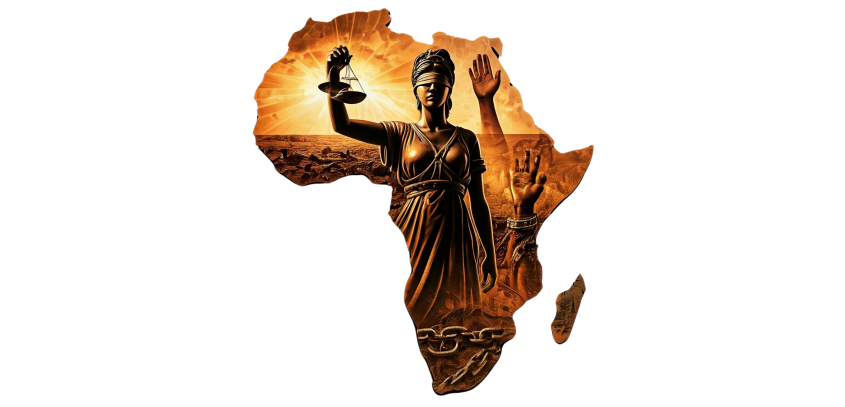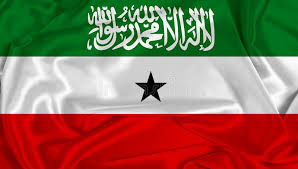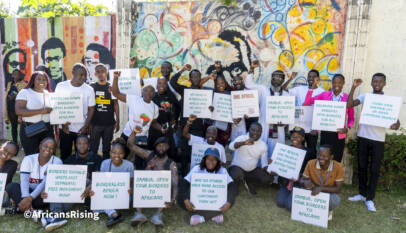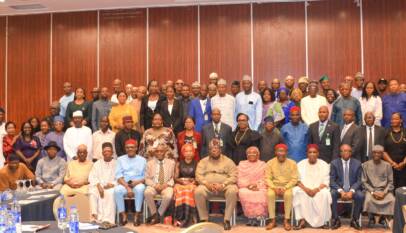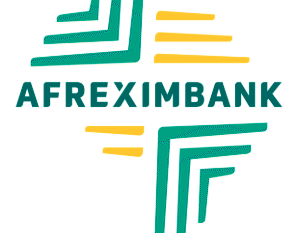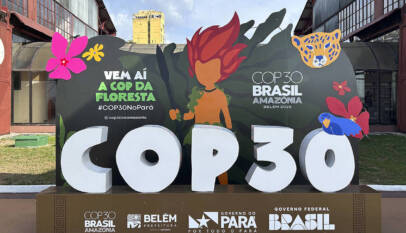Africa Day 2025: AU-ECOSOCC and Africa’s Quest for Reparatory Justice
On Africa Day 2025, we take a closer look on the African Union’s Economic, Social and Cultural Council’s tireless campaign for reparatory justice – from calls for the restitution of stolen cultural artifacts to campaigns for debt relief and recognition of the colonial violence and slavery that tore apart communities across the continent.
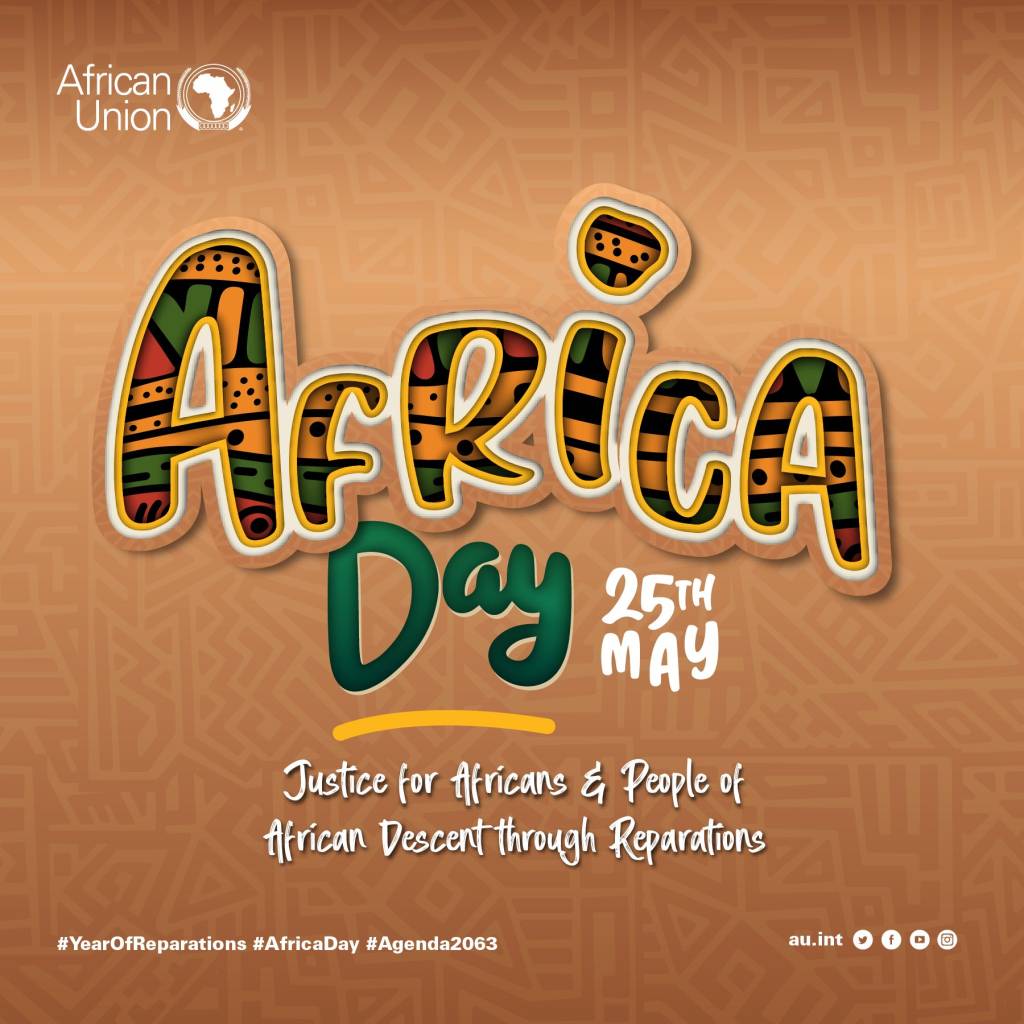
“Neither cruelty, nor violence, nor torture will make me beg for mercy, because I prefer to die with my head raised high, with unshakeable faith.” – Patrice Lumumba
These are the defiant words of Patrice Lumumba, the first Prime Minister of the Democratic Republic of Congo, that still echo across the African continent more than six decades after his exceptionally brutal and gruesome murder in 1961
Lumumba’s dogged commitment to dignity in the face of stark colonial brutality has become a rallying cry for a continent that continues to grapple with the deep scars of colonization and exploitation. Colonialism was more than just an occupation of African lands, it was an assault on African identity, culture, and dignity. It was an era marked by forced labor, the theft of natural resources, and the systematic elimination of indigenous cultures.
Today, as Africa celebrates the 62nd anniversary of the founding of the Organisation of African Unity/African Union (OAU/AU) under the theme: Justice for Africans and People of African Descent through Reparations, these wounds remain fresh for many communities whose livelihoods, lands, and identities were torn apart by European imperialism. For them, Africa Day is not just a day for the celebration of unity. It is a day that reechoes their demand for reparatory justice, to heal, and to reclaim a future built on their terms.
In 2023, the AU declared 2025 the Year of “Justice for Africans and People of African Descent Through Reparations. This underscores the Union’s commitment to redressing historical injustices and ensuring that the voices of those harmed are heard and honored. It places reparatory justice at the heart of Africa Day 2025, resonating with the cries of communities whose lives and identities were shattered by centuries of colonial violence, apartheid, systemic racial discrimination, as well as the transatlantic slave trade.
The AU theme calls for a reckoning with the past, but also creating a future in which the dignity of Africans and people of African descent is restored and respected through meaningful action and policy change. It also emphasizes that reparations are not just about financial restitution; they are about restoring agency, rebuilding cultural heritage, and reclaiming the narratives that have long been silenced. The theme recognizes that healing is both a collective and personal journey, rooted in truth-telling and the pursuit of justice.
In his statement on this auspicious day, Mahamoud Ali Youssouf, Chairperson of the African Union Commission (AUC), highlighted the continent’s determination to address historical injustices and build a future of peace and prosperity. He sees Africa’s youthful population, vast natural resources, and resilient economies as the continent’s strategic assets, insisting that Africa must no longer be an afterthought in global geopolitics.
“It is our duty as Africans to safeguard our resources and prioritise value addition through transformative initiatives like the African Continental Free Trade Area (AfCFTA). Africa must no longer be an afterthought in global geopolitics. Let us reaffirm our shared values and take rightful ownership of our future on the global stage. Pan-Africanism was forged through the dreams and determination of our people – but also through strategic foresight. Let us honour that legacy with bold, united action,” Youssouf urged.
Reckoning with Colonial, Slavery Legacies
Africa Day 2025 underscores the need to address the lasting effects of colonization, slavery, and systemic discrimination while tackling contemporary challenges. The reparations agenda unites Africans in Africa and the Diaspora to advocate for justice, equity, and redress. Yet, the theme’s successful implementation requires clear strategies, institutional coordination, and robust partnerships among CSOs, Regional Economic Communities (RECs), national governments, and diaspora groups, hence the central role of AU-ECOSOCC.
William Carew, Head of ECOSOCC Secretariat, says the legacy of colonialism and slavery still profoundly shapes Africa’s socio-economic and political landscapes. Mr Carew believes colonial economies were designed to serve the needs of foreign powers, creating a dangerous dependency on a narrow set of raw materials. Hence, decades after the end of colonialism, this dependency has left African economies vulnerable to global market shifts, making it harder for countries to diversify and build resilient local industries.
The ECOSOCC Chief said colonial powers have entrenched deep social and economic inequalities, which still echo in modern Africa, fueling wealth disparities, social exclusion, and ongoing political conflicts. “The impact of colonial extractive institutions was not limited to economic structures alone, it created weak governance institutions that continue to struggle with corruption, poor public service delivery, and limited transparency. Colonial institutions were built for extraction, not for governance.”
Carew further blamed the governance and social crises in African countries on colonial legacies. “Colonial policies didn’t just take our resources; they tore at the social fabric of our communities, leaving behind inter-ethnic tensions and deep divisions that we still see today. They left us with systems that prioritize the interests of the few over the needs of the many. Reclaiming our cultural identity is not just about pride. It is about healing the psychological wounds of colonialism and restoring dignity to African societies,” he explained.
ECOSOCC’s Holistic Reparatory Justice Advocacy
ECOSOCC’s reparation advocacy is beyond historical grievances and extends to contemporary challenges such as climate change, racial discrimination, economic exploitation, and marginalization, which also demand redress. “Reparations, therefore, are not merely about addressing historical wrongs; they are integral to building a just and equitable future. Contemporary challenges such as climate change, systemic racial discrimination, economic exploitation, and marginalization also demand redress.”
“Africa, while contributing the least to global greenhouse gas emissions, suffers disproportionately from the adverse impacts of climate change. Industrialized nations in the Global North bear historical responsibility for environmental degradation. Reparations in the form of climate financing, technology transfer, and fulfillment of commitments such as the replenishment of the Green Climate Fund (GCF) and the establishment of the Loss and Damage Fund are essential for Africa to mitigate and adapt to climate challenges,” Carew said.
He linked the economic disparities between Africa and the Global North to the wealth amassed by colonial powers via resource extraction. “Today, multinational corporations continue exploitative practices, particularly in the extractive industries. A stark example is the DR Congo, where the mining of cobalt and coltan for global supply chains has resulted in environmental degradation, labor exploitation, and conflict. Economic reparations must include fair trade practices, corporate accountability, and investments that directly benefit African communities.”
The ECOSOCC Chief said the restitution of looted cultural artifacts remains a vital aspect of reparatory justice and called for the return of stolen artifacts to their rightful owners in African nations is a step toward cultural restoration and healing. “Reparations must address systemic issues such as racial discrimination, exclusion from global decision-making, and economic marginalization. This includes advocating for greater representation of African nations in international institutions and ensuring that global systems promote equity and justice,” he noted.
Towards Reparatory Justice
AU-ECOSOCC has, since 2021, been holding virtual and in-person convenings, engaging civil society and diaspora voices on reparatory justice. The crux of these engagements is incorporating reparations into AU flagship programs and policies, strengthening relationships between AU, civil society, and other actors, and promoting a united framework for advancing reparatory justice. One of ECOSOCC’s key mandates is to ensure that these historical injustices are not forgotten.
ECOSOCC has a multifaceted strategy for integrating historical memory into African policymaking, engaging civil society, and amplifying historically marginalized community voices. “ECOSOCC acts as a bridge between the AU and CSOs. We encourage CSOs to participate in policy discussions, ensuring that their insights and experiences shape the decisions that affect them. ECOSOCC convenes forums where African leaders and communities can openly discuss the legacies of colonialism and the transoceanic slave trade,” said Carew.
To this end, the ECOSOCC Chief said his organisation had been pushing for policies that acknowledge historical injustices and ensure that they are addressed in the national and regional agenda. ECOSOCC’s work also extends to supporting research and documentation efforts that illuminate the full scope of colonial and slavery-era injustices. By supporting academic institutions and grassroots researchers, ECOSOCC is helping to build a rich archive of knowledge that policymakers can use to craft more equitable and just policies.
“We cannot talk about reparatory justice without fully understanding the extent of the harm that was done. Thus, ECOSOCC empowers policymakers and civil society actors with the skills and tools to integrate historical contexts into their work. We believe that healing begins with knowledge. When we understand our past, we can build policies that reflect our aspirations for a just and united Africa. This includes everything from the restitution of stolen artifacts to economic justice measures like debt cancellation and reparations for communities whose lands and resources were stolen,” said Mr Carew.
For communities like the Herero in Namibia or the Mau Mau veterans in Kenya, whose ancestors faced some of the most brutal colonial abuses, the fight for reparatory justice is deeply personal and rooted in lived experiences passed down through generations. Thus, Africa Day 2025 is but a clarion call for action, a day to honor the defiance of leaders like Patrice Lumumba and Jomo Kenyatta, who opposed colonial violence with unwavering resolve.
As ECOSOCC continues to push for reparatory justice, Africa’s journey to heal old wounds becomes a journey to build a continent where no child is made to feel that their history or heritage is inferior to others. The AU advisory organ believes these injustices have perpetuated global inequalities and hindered Africa’s development, calling for holistic redress and accountability. Yet, Africa Day also reminds us that healing is not automatic. it requires deliberate policies, inclusive dialogues, and a collective commitment to justice.

